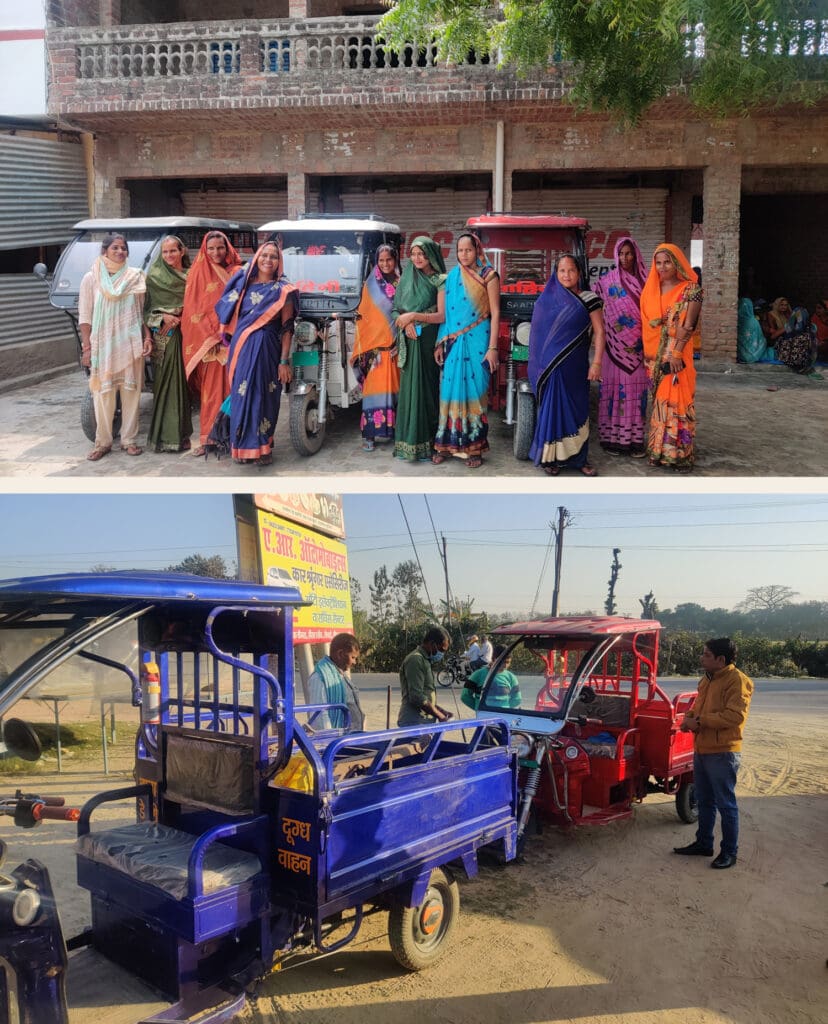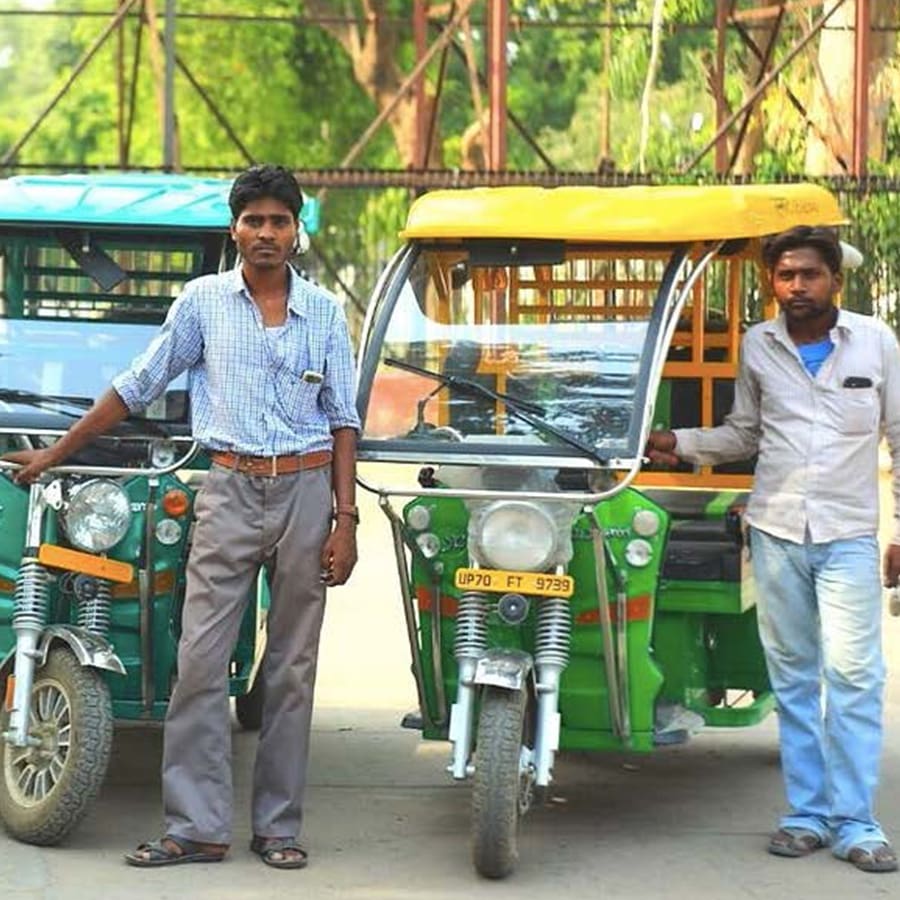Clean Mobility
Improved mobility can address a range of development challenges by enabling communities to access basic needs, health services, education, new markets for their goods and services and other livelihood opportunities. This is especially true for rural India, where conventional mobility solutions largely cater to long-distance connectivity, high-density hubs and loading volumes, leaving out low-density, village-centric areas and limiting mobility for those without personal vehicles (esp. women). The COVID-19 pandemic has also acutely impacted the already severe unemployment rates, pushing individuals to take up underpaid, irregular and daily wage jobs with limited or no scope for growth and development.
Sustain Plus’ focus on clean mobility is directed towards creating sustainable livelihoods for men and women in the mobility space and improving the last-mile connectivity landscape in rural and peri-urban regions, especially for excluded, underserved, and vulnerable groups.
Sector experts estimate that nearly 48% of the Indian population in rural areas walks between 2-10 km to reach their workplace. The absence of transport infrastructure affects women the most, as they often have to rely on male members to access public spaces, education, healthcare and livelihood opportunities. 3-wheeler EVs (e-rickshaws) are well suited for both passenger mobility and logistics in this segment. Introducing e-rickshaws in these communities is a much-needed solution, especially when driven by women themselves. EVs also have the potential to plug the gap in affordable agricultural logistics, helping small and marginal farmers sell their produce at local markets.
By combining e-vehicles with blended financing and capacity building, women and men are empowered to be entrepreneurs with greater control and agency over their income and time.


